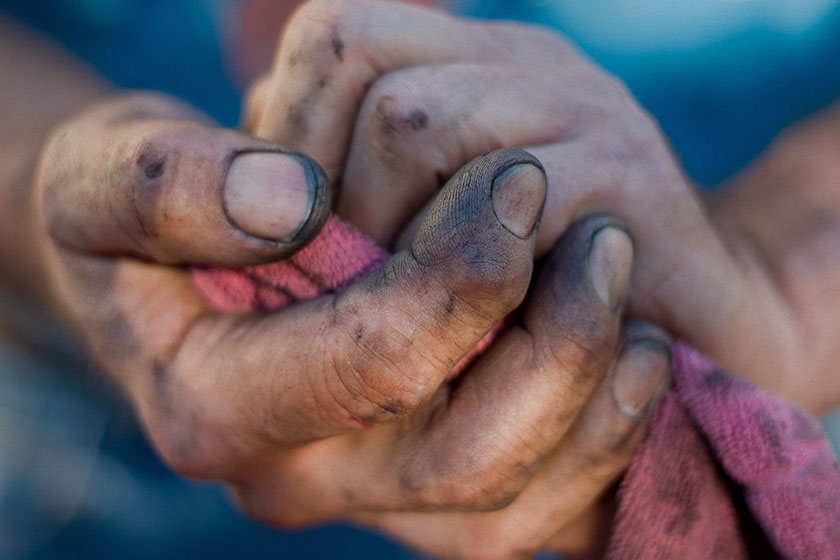
Bill and Mitch grew up in the same area, served in the military in Iraq, and worked as first responders. But they’re linked in an even more profound way, and that connection is helping change lives.

Bill and Mitch grew up in the same area, served in the military in Iraq, and worked as first responders. But they’re linked in an even more profound way, and that connection is helping change lives.

Shane loved his children and had never wanted to hurt them, but his addiction had damaged them.

Phil thought he had his addiction under control. He kept working, even managing teams of people and millions of dollars in projects, but eventually he slipped into darkness.

The following article was originally published in Winter 2017 edition of Inside Journal. Inside Journal is a quarterly newspaper published by Prison Fellowship® just for prisoners.
This article is reprinted here with permission.

A new report by the Federal Bureau of Investigations has revealed an increase of violent crime for the year 2015, marking a three-year high after declines in violence in 2013 and 2014. Much of this has been driven by increases in homicides in several of the nation’s urban centers, including Chicago, Houston, and Washington, DC.

“Justice that restores. What does that mean? Who are we restoring? Where are we restoring them to?”
Prison Fellowship President and CEO James Ackerman asks these questions to a recent gathering of volunteers in Tampa, Florida. The answer, he suggests, can be found in the words of the prophet Isaiah: “Learn to do right.

For Prison Fellowship Vice President of Advocacy and Public Policy Craig DeRoche, justice reform is more than a job, it’s a passion developed from personal experience.
At the age of 34, DeRoche was elected Speaker of the House in the Michigan State Legislature—the youngest person to ever hold that position.
What is the appropriate Christian response to the challenges facing the criminal justice system in the United States? While many Christians know the biblical mandates to “seek justice” and to “remember those in prison,” they are often unsure how to live out those values in real and tangible ways.
On paper, my nephew should never have become addicted to drugs. He was a bright young man raised in a wonderful home by godly parents. And yet, he traded it all in for his substance abuse, leaving his heartbroken family behind when he went to prison.
Katherine Thompson recently served as a policy intern with Justice Fellowship. A version of the following article originally appeared on the House of Margaret Thatcher website, and is used here with permission.
If I could attend church in prison every week, I would.
In September, high schools are once again brimming with teenagers, looking through college brochures, figuring out who to ask to the homecoming dance, and worrying about exams and report cards. But that’s not the case for every young person on the edge of adulthood; too many embark on a course that leads them to prison.
Roberto and I had never met before, but neither that—nor the prison regulations against physical contact with visitors—kept him from giving me a bone-crushing hug.
“I’m so thankful you are here,” Roberto said, towering over me while a grin stretched across his face.
“Restore us, LORD God Almighty; make your face shine on us, that we may be saved.” – Psalm 80:19
To restore something, in a spiritual sense, is to return it to the state God intended for it. God created men and women in His image and gave us the privilege of loving Him and one another.
I sat recently with a state-level corrections leader who had made time in his busy schedule to have lunch. He was feeling the need for prayer. Though he is a man with an impressive career of leadership, he is new to his job and new to the entire field of corrections.
Brother Potts will never go home. Because of the crimes he has committed, he will spend the rest of his days on earth locked behind prison bars. But he is also one of the most joyful people I know. He is humble, gentle, and caring.
Restoration Partners give monthly to bring life-changing prison ministry programs to incarcerated men and women across the country.
JOIN NOW